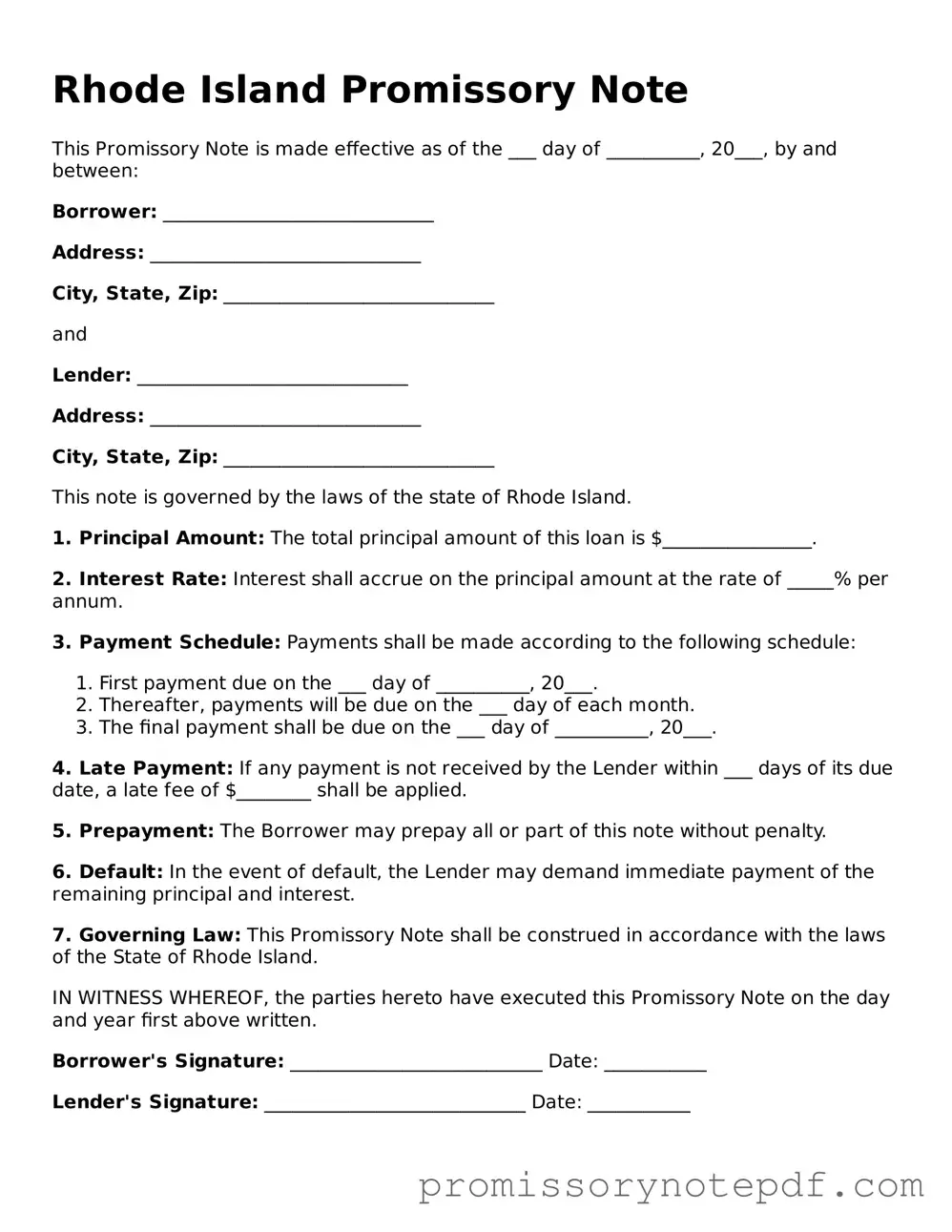Similar forms
The Rhode Island Promissory Note form shares similarities with a Loan Agreement. Both documents outline the terms of borrowing money, including the amount, interest rate, and repayment schedule. A Loan Agreement typically provides more detailed terms and conditions, such as default provisions and collateral requirements, while a Promissory Note is often simpler and focuses primarily on the borrower's promise to repay the loan. Both documents serve to protect the lender's interests and establish clear expectations for repayment.
Another document that resembles the Promissory Note is a Secured Promissory Note. This type of note is similar in that it represents a borrower's commitment to repay a loan, but it includes additional provisions that secure the loan with collateral. If the borrower defaults, the lender has the right to claim the collateral. This added layer of security makes it a more robust option for lenders, while still retaining the fundamental characteristics of a standard Promissory Note.
A Personal Guarantee is also comparable to a Promissory Note. While a Promissory Note is a promise to pay back a loan, a Personal Guarantee involves an individual agreeing to be responsible for a debt if the primary borrower fails to pay. This document provides additional assurance to the lender that they will be repaid, similar to how a Promissory Note reassures lenders of the borrower's commitment to repayment.
Additionally, an IOU (I Owe You) is akin to a Promissory Note in that it serves as a written acknowledgment of a debt. An IOU is typically less formal and may not include detailed repayment terms or interest rates. However, both documents recognize that money is owed and establish a basic understanding between the borrower and lender. An IOU can be a quick way to document a loan, while a Promissory Note provides a more structured approach.
Lastly, a Mortgage Note is another document similar to a Promissory Note, especially in the context of real estate transactions. Both documents involve a borrower's promise to repay a loan. However, a Mortgage Note is specifically tied to a mortgage loan, where the property itself serves as collateral. This means that if the borrower defaults, the lender can initiate foreclosure proceedings on the property. The Mortgage Note includes details about the loan amount, interest rate, and repayment terms, similar to a Promissory Note, but with the added element of real estate security.
